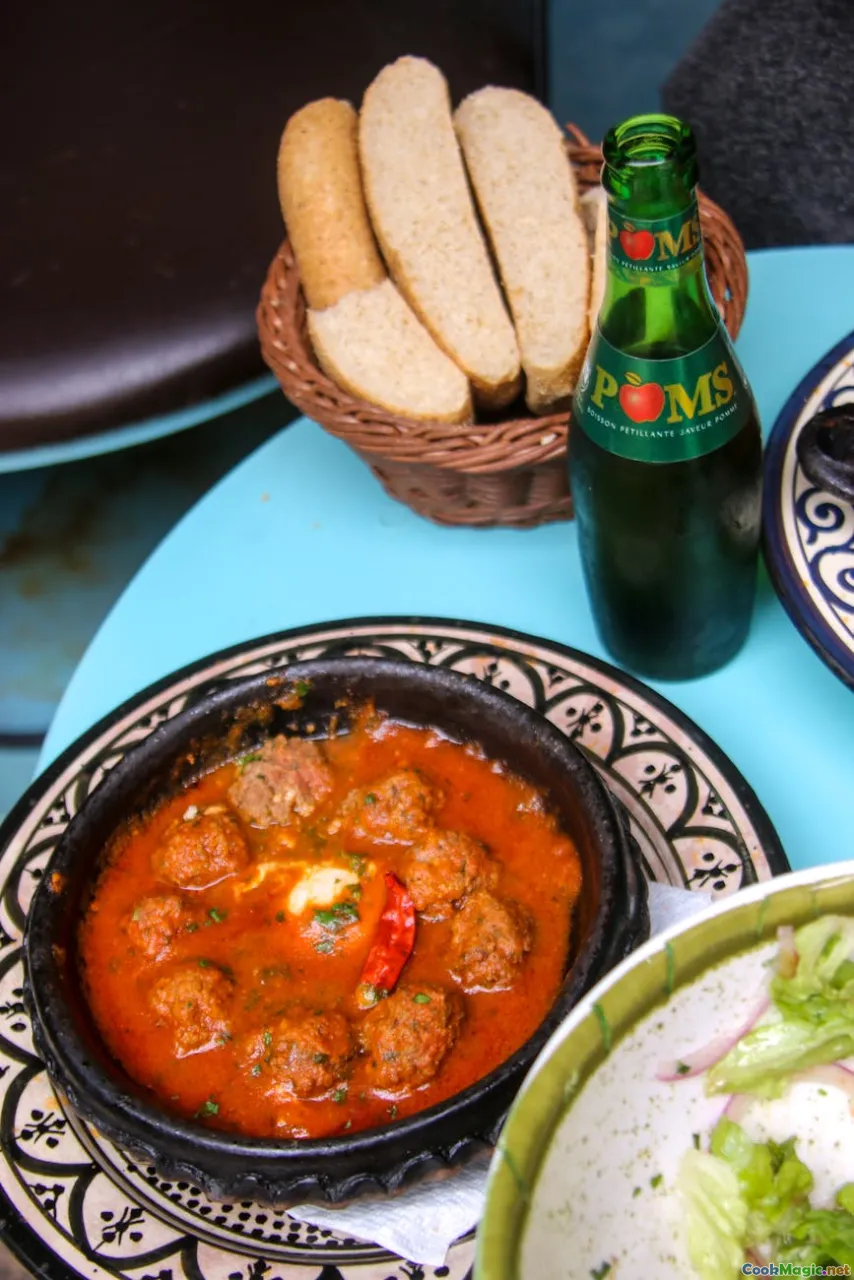Cameroon Spice Secrets
8 min read Discover the vibrant world of Cameroonian spices—uncovering secrets that elevate dishes with bold, aromatic flavors rooted in centuries of tradition. May 01, 2025 19:00
Cameroon Spice Secrets
Imagine walking into a bustling market in Yaoundé or Douala, where the air is thick with the intoxicating aroma of freshly ground spices, sizzling stews, and fiery chilies. Cameroon, a melting pot of cultures and landscapes, boasts a culinary tradition rich in flavor and history. Central to this vibrant cuisine are its unique spice blends—hidden secrets passed down through generations—that transform simple ingredients into extraordinary dishes. In this article, we’ll explore the captivating world of Cameroonian spices, their cultural significance, and how they create the unforgettable taste profiles that define this West African nation.
The Cultural Tapestry of Cameroonian Spices
Cameroon’s diverse geography—from lush rainforests to savannahs—provides an abundant bounty of herbs and spices. These ingredients are not just culinary tools but are woven into the social and spiritual fabric of communities. Spices are used in rituals, celebrations, and daily life, often carrying symbolic meanings. For instance, certain spices are believed to ward off evil spirits or bring good fortune.
The history of Cameroonian spices is deeply intertwined with trade routes that linked Africa to Asia, Europe, and the Middle East. Traders and explorers introduced new flavors, which locals seamlessly integrated into traditional recipes. Over centuries, this exchange produced a unique spice palette that is both familiar and distinctive.
A Closer Look at Key Cameroonian Spices
1. Alligator Pepper (Afromomum melegueta)
Often called the 'pepper of the gods,' alligator pepper is a small, reddish-brown seed packed with intense aroma and fiery heat. Its pungent, peppery flavor is complemented by hints of citrus and earthiness. It’s used in both culinary dishes and ceremonial rituals, such as libations and ancestor offerings.
2. Grains of Paradise (Aframomum melegueta)
Related to alligator pepper, grains of paradise are prized for their complex flavor—spicy, peppery, with nuances of cardamom and ginger. They add depth to soups, stews, and marinades, elevating everyday ingredients into gourmet fare.
3. Calabash Nutmeg (Monodora myristica)
This aromatic spice imparts warm, nutty, and slightly sweet notes to dishes. It’s often used in seasoning beans, meat stews, and sauces, providing a subtle depth that balances fiery heat.
4. Local Chili Peppers
Cameroon’s chili peppers are fiery, smoky, and add a signature kick to almost every dish—from the famous Ndolé (bitterleaf stew) to grilled fish. They vary in heat levels but are universally loved for their ability to ignite the palate.
5. Crushed Ginger and Garlic
While common globally, the Cameroonian way involves generous amounts of fresh ginger and garlic, which infuse dishes with warmth, pungency, and aroma. They serve as foundational flavors in many stews and sauces.
Signature Spice Blends and Their Culinary Uses
Yam and Plantain Seasoning
A vibrant blend of crushed ginger, garlic, chili, and alligator pepper, used to marinate grilled meats or flavor boiled yams and plantains.
Pepper Soup Mix
A spicy concoction of grains of paradise, calabash nutmeg, and local chili peppers, simmered with meat or fish for a warming, medicinal broth.
Ndolé Spice Mix
A fragrant mixture combining dried herbs, chili, and crushed nuts, giving the popular bitterleaf stew its distinctive flavor.
Fried Fish Rub
A blend of crushed ginger, garlic, chili, and grains of paradise, used to season fish before frying or grilling.
The Emotional and Personal Connection to Spices
For Cameroonians, spices are more than just flavor enhancers; they are carriers of memory, identity, and tradition. Grandma’s secret spice mix might evoke childhood memories of family gatherings, while a particular chili pepper recipe could be linked to a festival or rite of passage.
During festive seasons like NgondoorFête de la Jeunesse, special spice blends are prepared to honor ancestors and celebrate community. These moments reveal the deep emotional resonance spices hold—connecting generations through shared culinary heritage.
Personal Reflection
As a food writer, I’ve often marveled at how a simple bowl of Ndolé can tell a story—one of history, resilience, and community. The fiery kick of Cameroon’s peppers coupled with the earthy warmth of grains of paradise creates a sensory tapestry that is both invigorating and comforting. It’s a reminder that in every pinch of spice, there’s a story waiting to be told.
Tech and Techniques: Crafting the Perfect Spice Experience
Grinding and Blending
Traditional methods involve pounding spices with a mortar and pestle, releasing their essential oils and intensifying flavors. Modern cooks may use spice grinders, but the ritual of grinding by hand remains cherished.
Storage and Preservation
Spices are stored in airtight jars, often in cool, dark places to preserve their potency. Some households grind fresh spices daily, while others prepare large batches for seasonal use.
Cooking Tips
- Toast spices lightly before grinding to unlock their full aroma.
- Use fresh spices for vibrant flavor; old spices lose their punch.
- Balance heat and aroma—don’t overpower dishes with too much chili.
Final Thoughts: Embracing Cameroonian Spice Secrets
Cameroonian spices are a living testament to a rich cultural mosaic, a culinary language spoken through aroma, heat, and flavor. They invite us to explore beyond the familiar, to embrace boldness and authenticity in our cooking. Whether you’re a home cook or a seasoned chef, incorporating these spices into your repertoire can transform everyday meals into vibrant celebrations.
So next time you reach for a pinch of pepper or a dash of chili, remember—you’re not just seasoning food; you’re participating in a centuries-old tradition that connects past and present through the universal language of flavor. Dive into Cameroon’s spice secrets and let your palate embark on a journey of discovery and delight.
End of article.









